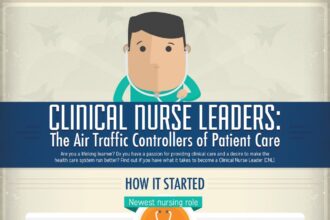McGuire: The Land Grab is Misguided
The former chairman and CEO of United Health Group Dr. Bill McGuire recently discussed the opportunity for wireless health (or technology enabled healthcare or whatever you want to call it), wasteful spending on EMRs, the need for interactivity among healthcare technology applications, opera, education and much much more. Dr. McGuire is the Vice Chairman of TripleTree Holding Company and is delivering one of the keynotes at the upcoming Wireless-Life Sciences Alliance Convergence Summit in San Diego next month. TripleTree is an investment bank and one of the founding members of the WLSA and the summit. Read on for an edited version of our recent conversation with Dr. Bill McGuire. How do you characterize the opportunity for wireless health? Could you also provide us with some sense of the current investment climate — a lot of activity? A lot of interest but not a lot of activity? I like to position it as: How can we build products, services, and systems that facilitate the eventual appropriate health and wellbeing for the people in this country and elsewhere. In pursuit of that and in consideration of all that has been done — both good and bad — and all that is yet to be done, which is significant and formidable, I think the whole area of technology enabled healthcare or mHealth or any term you’d like to apply, offers significant opportunity to meet that end. It still remains to be seen obviously what the most appropriate areas and most beneficial areas will be to accomplishing that. When it comes to investments, of course, there will be a lot of investments in things that don’t make any difference or are not contributory to the kind of outcomes I am describing. What kind of things? If you look at what has happened in last several years particularly with reform: These huge expenditures that have been directed at technology applications in healthcare. I’m afraid we will see that we have spent an enormous amount of money for marginal or no gain. It’s very indiscriminate. That’s classic healthcare, though and classic investing: ‘Let’s just throw money at things.’ You have the whole idea of applications on cell phones for example. Embedded among [the thousands] of health apps out there are probably a few that will make a difference in the lives of some people. Those apps should theoretically lower costs and improve outcomes, but most of these apps exist because we happen to like apps, it’s a nice story, so we chase them. Discerning what is ultimately going to make a difference and result in the kind of outcomes we are looking for, which is differentiated from just investing money, is the critical issue. The smart investors, smart developers, smart policy makers and so on will benefit from that. The land grab that is going on right now — just throwing money at it — is a little bit misguided. Another issue is the lack of interactivity among these technology applications. The fragmentation and silos continue. Rather than determining how to piece a number of necessary components together, we have a lot of independent efforts out there to chase after something. We ask for electronic medical records (EMRs) but we don’t necessarily put out standards of performance and interactivity between them. So when someone comes along and asks to gather data or information we know that we can’t get it from each and everyone of them. So EMR efforts are misguided? The amount of money that is being thrown at this stuff relative to the value that it is going to return to us is ridiculous and it will not prove to offer up the kind of end gains that we are touting. Those are health outcomes gains and financial gains in terms of lowering costs. I see nothing that suggests this is going to dramatically improve outcomes, improve access to care for people who had heretofore not had access to care and certainly nothing that suggests that it is going to lower the costs of healthcare in America. People are rushing to do various EMRs simply because the government says we will pay you to install it. If you talk to people who try to extract data from various EMRs they would tell you that there is no consistency in the expectation to do it from many different systems and yet we are spending billions of dollars on this. Let’s switch gears back to wireless health. Are any companies on the right path? If you aren’t comfortable naming companies, what are some specific use cases that you think are promising? I will be necessarily cautious about the specifics because I don’t want to come across as endorsing or refuting things that I know relatively little about specifically. Let’s start with a concept. What I think we are talking about in some way parallels what we are seeing from efforts in education. As we confront challenges around resource availability and the spacial relationship between the users (the someone in need) and the resource. The ability to take content out to individuals — which is what mHealth or various mobile technologies have done — becomes a substitution for asking those people to go to the content source in a different way. It’s sort of like: If the cost of gas goes up and bus costs go up, how do we really expect kids to learn about the arts when they used to get on a bus and go on a field trip to a museum? Museums are beginning to take their content to the students where they live. The Metropolitan Opera says we can’t expect everyone to come to the Met, but opera is an important cultural element for society. So they started filming it and showing it at theaters around the country, which has been wildly successful. In these cases we are looking for ways to bring content out to touch people when we can’t in essence do it physically. In healthcare the same principle exists. People who live in remote sites do not have access to care — primary care to say nothing of secondary or specialized care. How do we help them manage their health and wellness and help deliver services that might be beneficial to acute but relatively everyday problems. That is the kind of application opportunity that the technology provides. Whether that includes telehealth, applications, gaming… that’s the huge opportunity. Any closing thoughts? I think healthcare might be unique in that it is a space where technological advance has not positively influenced efficiency or cost reduction. Just across the aboard it has not happened. Costs keep going up year after year after year. Why is that? The discussion we hope to have at the WLSA Summit is around how the companies presenting are in fact going to accomplish the needs of both enhancing efficiencies and lowering costs while achieving improved health outcomes for people. I expect it will be a lively discussion about disruption and how mobile will play into that.






